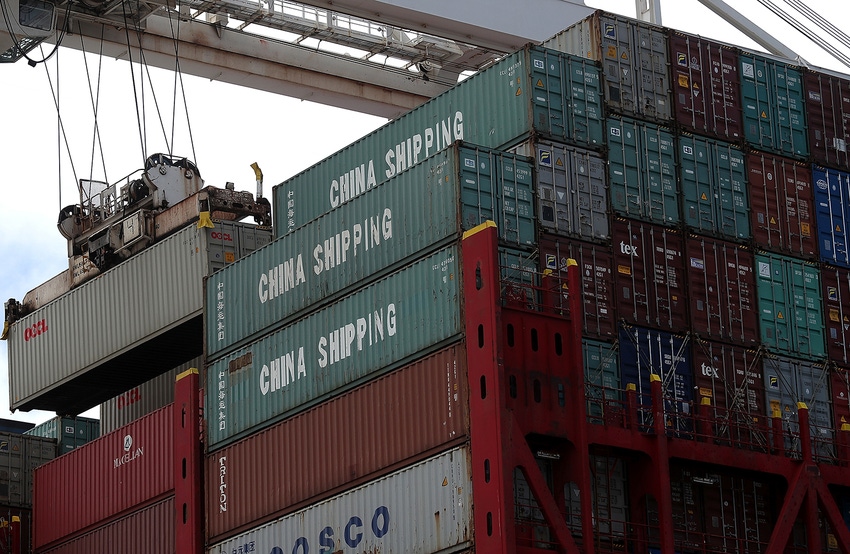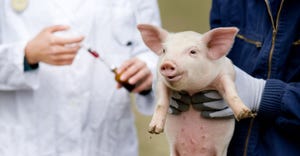Trump proposes more tariffs for China
Legislative Watch: More tariffs for China? farm, auto states impacted most; Japan ratifies CPTPP; farm bill conference committee getting set; Pruitt out, Kavanaugh in.

The Trump administration is getting ready to escalate the trade war with China by announcing it is preparing to hit China with additional tariffs of 10% on $200 billion of Chinese exports. This comes a week after the United States placed a 25% tariff on $34 billion worth of Chinese goods followed by China retaliating against U.S. products.
The products on the administration’s latest list targets a large number of consumer goods including clothing, refrigerators, air conditioners, tires, luggage, baseball gloves, some electronics, fish, fruits and vegetables. The last round of tariffs hit mostly raw materials.
China’s Commerce Ministry says the new list is “totally unacceptable” and China would impose countermeasures and file a case with the World Trade Organization. President Trump earlier said if China retaliated against the United States he would put tariffs on another $200 billion of Chinese goods.
The tariffs will not go into effect until after a public comment period ends Aug. 30.
Farm states and auto states most impacted by retaliatory tariffs
The U.S. Chamber of Commerce recently released a report detailing the impact on every state as a result of the Trump administration’s tariffs and the retaliatory tariffs from China, Japan, Mexico and the European Union. Farm states and states with large car production plants are the most vulnerable to the adverse effects of the tariffs.
The top 10 states hit the hardest are California, Illinois, Washington, Louisiana, Texas, Alabama, Ohio, South Carolina, Michigan and Pennsylvania. The number of exports affected by retaliatory tariffs in these 10 states range from $1.7 billion in Pennsylvania to $6.2 billion in Washington.
Japan ratifies CPTPP
Japan became the second country to ratify the Comprehensive and Progressive Trans-Pacific Partnership. Canada ratified the agreement earlier. It is expected CPTPP will go into effect in early 2019.
Now that countries are beginning to ratify the agreement, there is growing concern by U.S. agriculture that the United States will be at a disadvantage since the United States is no longer a part of the agreement since President Trump pulled out of the Trans-Pacific Partnership in January of 2017.
The duty on U.S. beef to Japan remains at 38.5% while Australia’s duty for Japan is nearly 27%. Australia’s duty will continue to decline over time while the U.S. duty will remain unchanged.
The U.S. wheat industry is concerned since the Japanese tariff on wheat for Australia and Canada will decline over time from $150 per metric ton to $85 per metric ton. The tariff on U.S. wheat will remain at $150 per metric ton. The U.S. Wheat Associates and the National Association of Wheat Growers in a joint statement say, “U.S. Wheat Associates and the National Association of Wheat Growers call on the Trump administration to end this threat by taking the bold but necessary steps toward joining the CPTPP or engaging in bilateral negotiations. We see no other way to stop a situation that we believe will cut already unprofitable cash wheat prices even further.”
The CPTPP countries are Australia, Brunei Darussalam, Canada, Chile, Japan, Malaysia, Mexico, Peru, New Zealand, Singapore and Vietnam
Farm bill conference committee gearing up
The House and Senate are hoping to soon name the members of the House-Senate Farm Bill Conference Committee so work can begin to work out the differences between the House and Senate passed farm bills. Their goal is to finalize a bill for President Trump to sign by Sept. 30 when the current farm bill expires.
There are a number of differences between the bills including payment limitations, conservation, cotton, dairy and energy programs. However, the major item that will determine if a farm bill can be completed this year is if an agreement can be reached on the Supplemental Nutrition Assistance Program. The House and Senate take very different directions on SNAP. The House bill reduces the number of people receiving benefits and reduces benefits received by households while at the same time increasing administrative costs for the program. The House bill increases the work requirements for SNAP recipients. The Senate rejected this direction by defeating an amendment 68 to 30 which would have added the House bill’s work requirements.
The House bill establishes a vaccine bank and provides mandatory funding for one year. The Senate bill authorizes the bank but does not provide mandatory funding. The bills do not include any provisions regarding country-of-origin labeling; packer ban; Grain Inspection, Packers and Stockyards Administration; interstate shipment of state inspected meat or date labeling.
With low commodity prices and the uncertainty caused by the trade war, agricultural groups are urging Congress to finalize the farm bill to provide some certainty for producers.
Pruitt out, Kavanaugh in
The ongoing and increasing ethical questions regarding the Environmental Protection Agency administrator finally took its toll with Administrator Scott Pruitt resigning. Andrew Wheeler is now the acting administrator.
Wheeler is a former coal lobbyist and worked a number of years as a staff member for the Senate Environment and Public Works Committee.
President Trump has nominated Brett Kavanaugh for the U.S. Supreme Court. He currently serves as a U.S. Circuit Judge for the U.S. Court of Appeals for the District of Columbia and served as White House Staff Secretary for President George W. Bush.
Kavanaugh was nominated by Bush in 2003 to the D.C. Court of Appeals, but was not confirmed until 2006. We can expect another fight over his nomination as it seems Supreme Court nominations have now become very partisan.
About the Author(s)
You May Also Like



